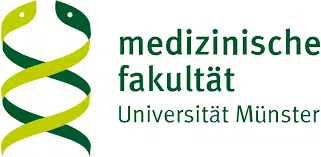Research Area A
Male infertility – genetics and comorbidities
Male infertility is a prime example of a complex disease: mild phenotypes such as oligozoospermia are multifactorial – combinations of genetic variants as well as lifestyle/environmental factors play a role, whereas severe phenotypes such as azoospermia are monogenic and caused by rare, high-impact genomic variation. However, only a minor fraction of monogenic causes and even less of multifactorial origin has been elucidated. We aim to advance diagnostic accuracy, increase the fraction of pathomechanisticallyexplained infertility, and, thereby, improve personalised patient care. Further, epidemiology indicates that infertile men feature an increased risk for comorbidities (e.g.cardiovascular/metabolic diseases and certain cancers). Thus, diagnosis of infertility has implications far beyond its acute treatment.
Research
projects
- PIs Sabine Kliesch (MD) and Frank Tüttelmann (MD) join their expertise on deep phenotyping and genomics of male infertility to co-supervise two (Advanced) Clinician Scientists who shall elucidate novel monogenic causes for azoospermia and scrutinise the molecular function of identified genes/encoded proteins. Capitalising on established approaches, they will level up deep phenotyping of azoospermic patients who undergo a testicular biopsy and, in parallel, sequence their genomes. Specifically, cutting-edge AI-supported digital histological analyses will be conducted to identify hitherto unrecognised testicular sub-phenotypes. This project will contribute to understanding the molecular causes of azoospermia and increase the diagnostic yield in affected patients, allowing to predict the success rate of testicular biopsies and is, thus, of high translational relevance.
- In a complementary project, Maria Schubert (MD) and André Karch (MD) combine their clinical, epidemiological, and statistical expertise and unique cohorts to decipher multifactorial forms of male infertility. This aims to identify environmental and lifestyle factors associated with male infertility and comorbidities. To this end, the PIs will co-supervise an Advanced Clinician Scientist who will have the unprecedented opportunity to combine the two cohorts of pheno- and genotyped infertile men with population-based cohorts coordinated at the Institute of Epidemiology. Further, the project will utilise established follow-up structures to create a “male infertility dataset” in our population-based cohorts and then jointly analyse the large clinical and epidemiological datasets. This will shed light on the so far largely unexplained forms of multifactorial male infertility and pave the way to personalised preventive and early-therapeutic strategies with focus on potential comorbidities.



